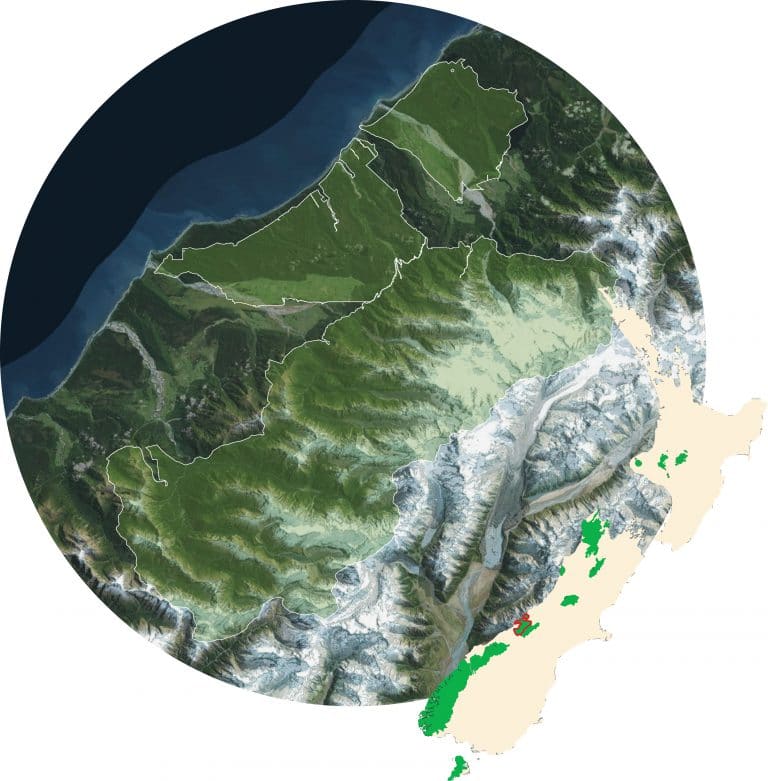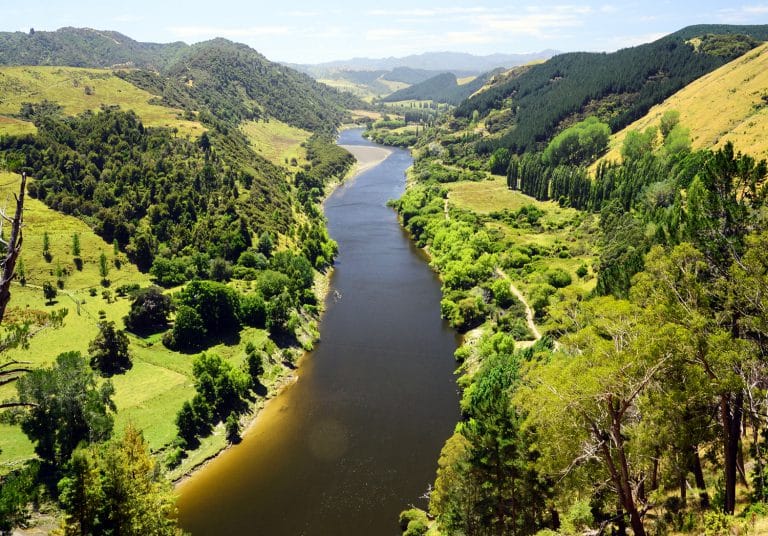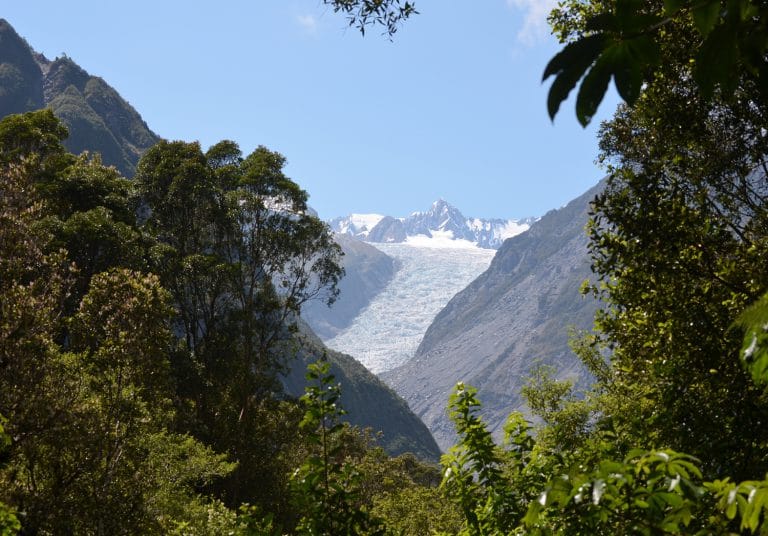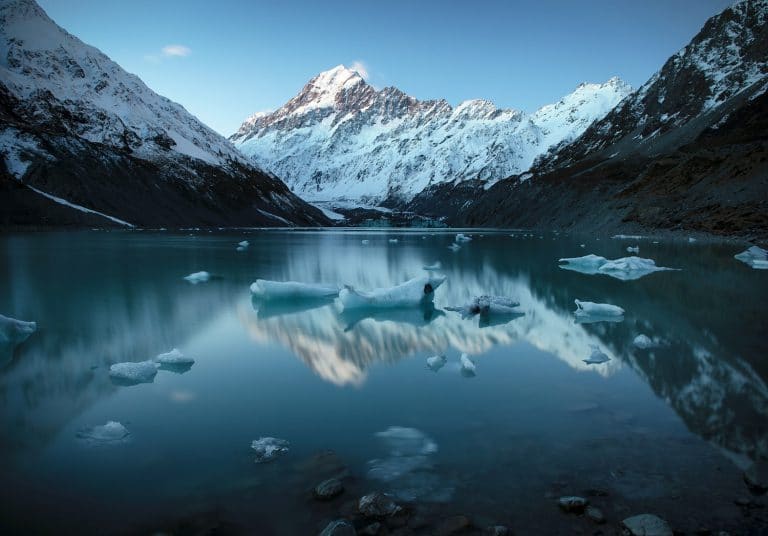The Whanganui River is an ever-present life force for the North Island of New Zealand. Of great historic importance, the river is one of the most culturally significant bodies of water in the country. Maori of Whanganui iwi have long believed that the river is…
Experiencing the Glaciers
Westland Tai Poutini National Park has been an important place in the development of guiding in New Zealand during the early twentieth century. The Graham family were pioneers of the tourism industry in Westland. Brothers Peter and Alec were renowned guides who expertly guided parties up glaciers and mountains. Today tour operators continue to offer guided tours onto the glacier, with helicopters making it possible to readily experience their upper reaches.
Image © West-Coast Legend Photography




